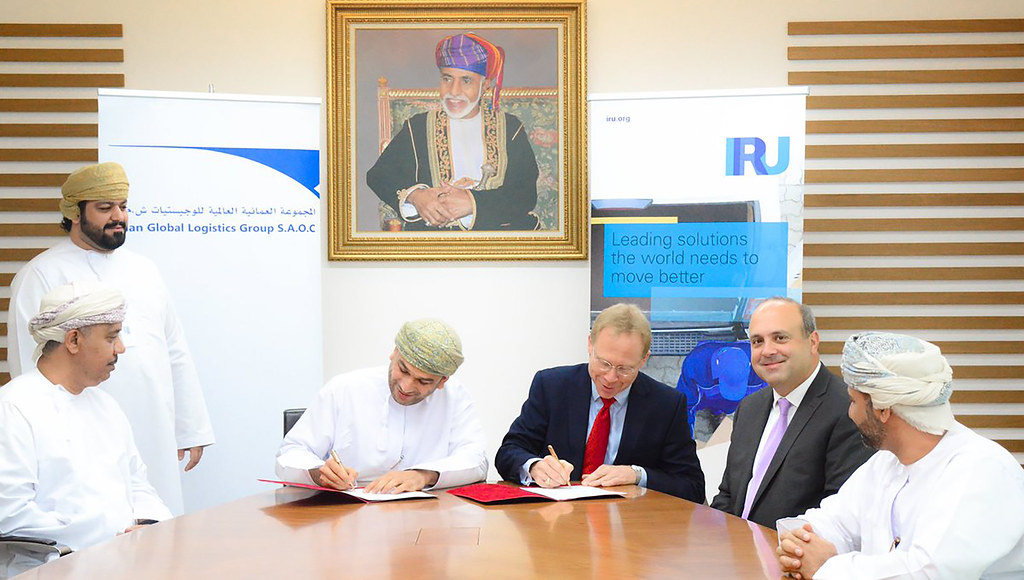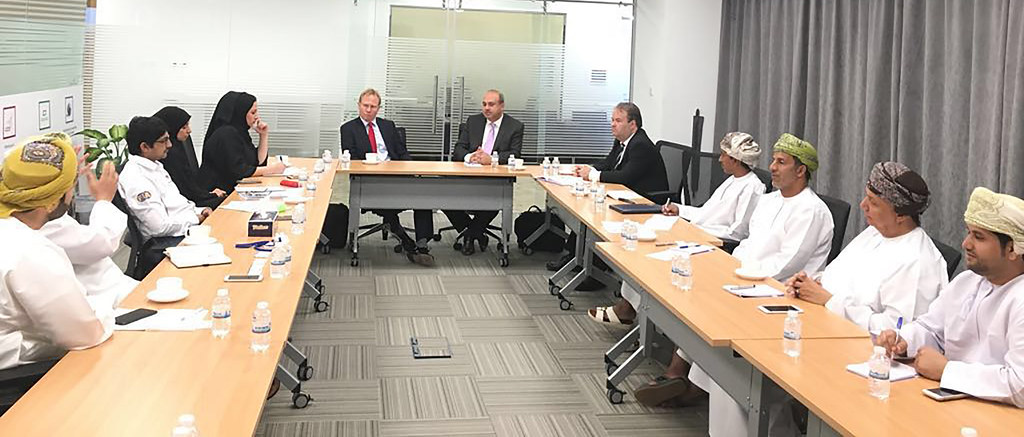IRU joins forces with Oman Global Logistics Group (OGLG) to reinforce the country’s potential as a major logistics hub, served by a robust road transport sector.
Both organisations have agreed on key areas of cooperation including accession and implementation of UN Conventions related to trade and transport facilitation, notably the TIR Convention, training and professional certification for commercial road transport, and the digitalisation of logistics systems.
Umberto de Pretto, secretary general of IRU said, “IRU is extremely pleased to be working together with OGLG to help transform the potential of road transport in Oman, bringing our nearly 70 years of experience and our global network to the endeavour.”
He continued, “Our organisations share a common and certain conviction that reforming road transport services and modernising the customs procedures of Oman will offer a powerful platform to address broader issues of regional trade development, sustainability and economic growth.”
At the signing ceremony in Muscat today, IRU and OGLG came together with high level officials from the Ministry of Transport and Communications and Oman Customs, to devise next steps for the development of the road transport sector. They also met with private sector organisations with vested interests in transport and trade facilitation to foster cooperation between the public and private sectors.
With a view to achieve the Oman Logistics Strategy 2040, the objective is to improve the country’s soft infrastructure, particularly the regulatory environment, support mechanisms and institutions to facilitate trade. Oman’s strategic location, suggests huge potential for trade acceleration.
Nabil Al Bimani, Executive director for the National Logistics Strategy said "In cooperation with IRU, we aim to encourage and facilitate road transport, simplifying regulations and practices related to the movement of goods along domestic and international routes.”
He added, “This includes customs facilitation and enhancing safety on the roads. There is no doubt that this step will improve transport services, enhance the economic, social and environmental aspects, and become part of an integrated plan to implement the National Logistics Strategy to facilitate sustainable trade activities, with the use of advanced technologies in the logistics sector to attract investment in Oman.”
Coming soon after recent developments towards TIR accession, this agreement reinforces Oman’s intentions to adopt international customs transit standards, while also setting out objectives to develop the goods and public transport sector, and to comprehensively grow the country’s mobility capabilities.
With innovation a key component of the drive towards modernisation, the use of digital transport and transit documents – such as e-CMR – is at the core of efforts to ensure a seamless, transparent and more efficient supply chain.
Acknowledging the benefits of training for the transport sector, the agreement also sets out a road map for adopting international professional qualifications for drivers and managers – such as those provided by IRU Academy – and awareness-raising initiatives on safety, efficiency and security.






